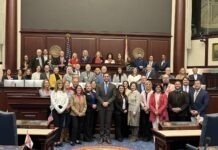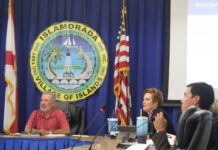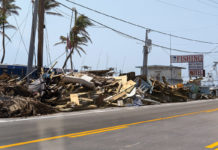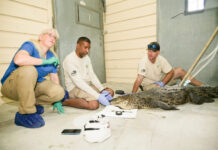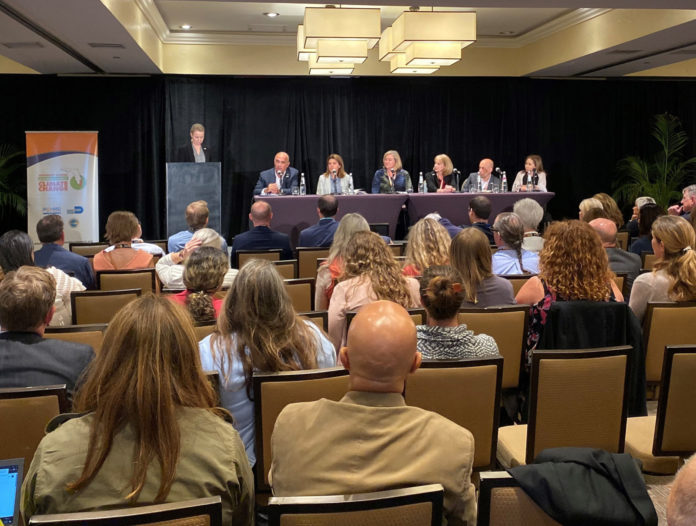
It’s Tuesday afternoon and the Casa Marina Resort is buzzing with more than the usual tourist activity. A man wearing a tie-dyed shirt and sporting a long grey ponytail chats animatedly with a clean-cut architect in a sleek, tailored suit. And they’re obviously in total agreement about the topic swimming between them.
This is the 11th annual Southeast Florida Regional Climate Leadership Summit, a gathering of representatives from all levels of state and county government, as well as private corporations, to address climate change mitigation strategies. The summit annually brings roughly 500 thinkers and leaders from business, government, higher education and nonprofits to the table for important conversations. The December event marks the first time since 2015 that the summit has been held in Monroe County.
When faced with distressing information, often the most solace can be found in facts. Knowing that experts — medical, legal and otherwise — are on the case is reassuring. The summit, hosted by Monroe County in collaboration with the City of Key West, the City of Marathon and the Village of Islamorada, provides volumes of valuable data. Leaders from fields ranging from public works to infrastructure development firms were on hand to put their heads together and share potential solutions for dealing with rising waters.
The 2019 theme, “Bridging the Gap,” refers to the work being done by Southeast Florida Regional Climate Change Compact. The compact is a formal collective formed by Broward, Miami-Dade, Monroe and Palm Beach counties in January 2010 as a way to coordinate adaptation activities across county lines, and in conjunction with federal, state, regional, municipal, nonprofit, academic and private sector partners. In the past 10 years, the four compact counties have worked diligently to address climate change, sea level rise, flooding and potential economic fallout. Essentially, the compact allows counties, which are witnessing the effects of climate change firsthand, to write the rulebook. The county officials, who are on the ground daily, are empowered to set standards for the adaptation plans that will directly affect their communities. The compact’s work is widely recognized as one of the nation’s best examples of climate action.
Read more in tomorrow’s Keys Weekly.






